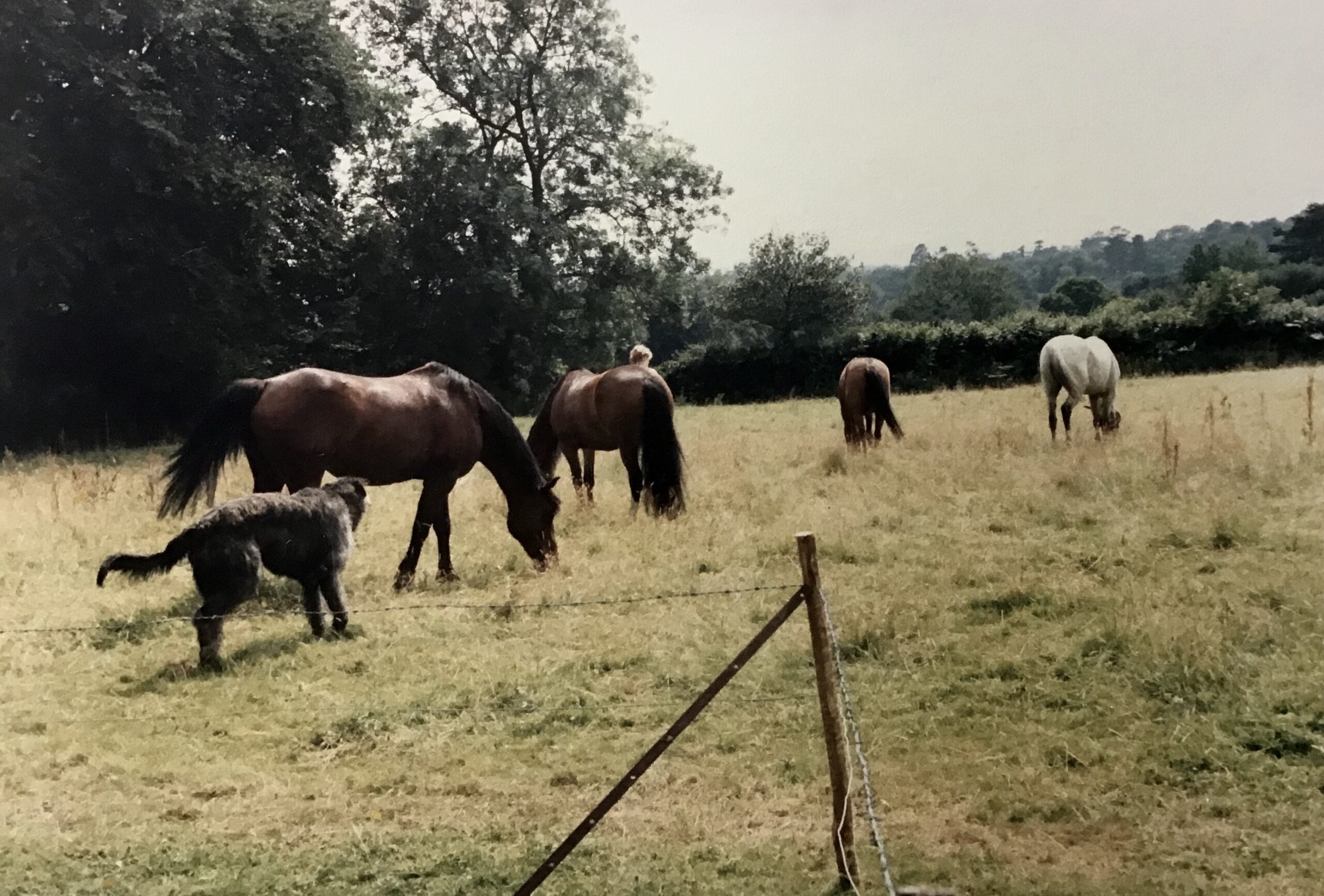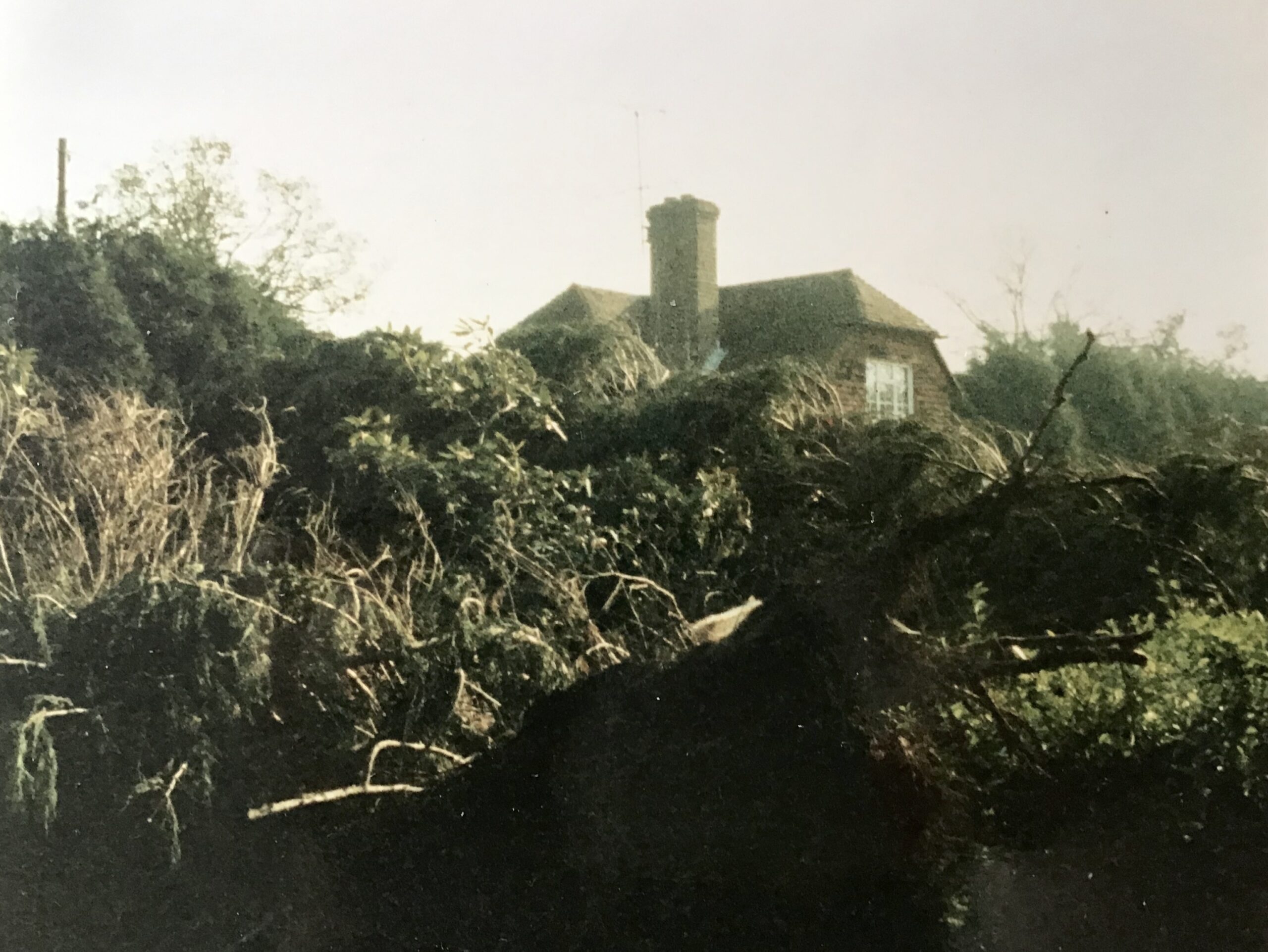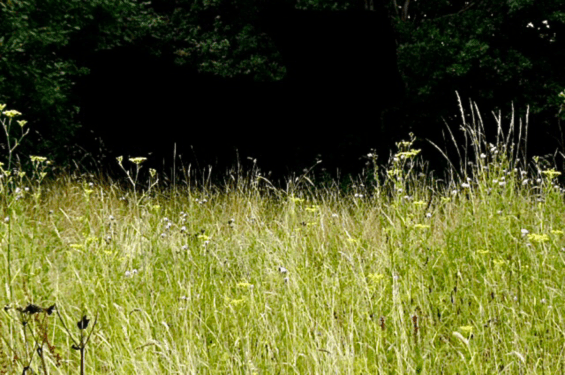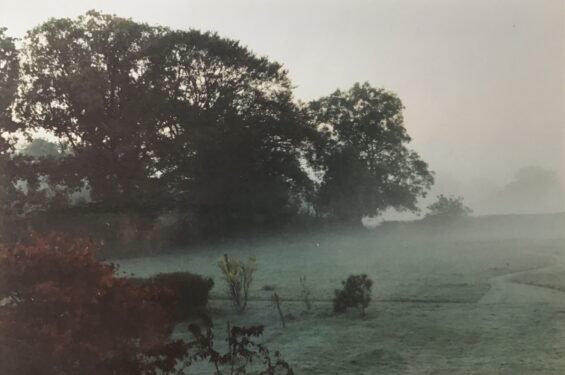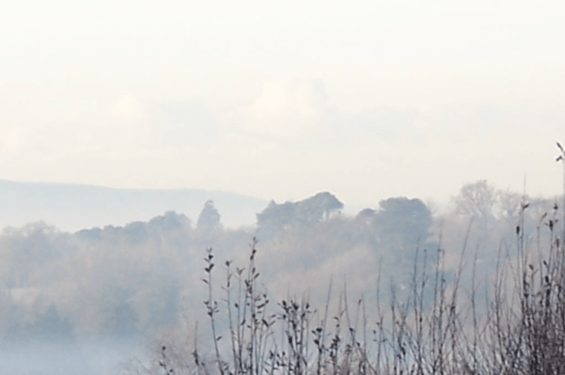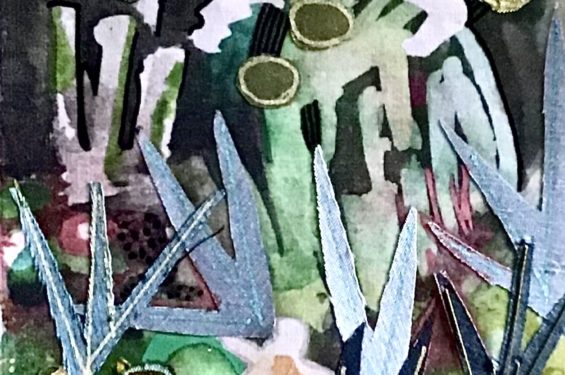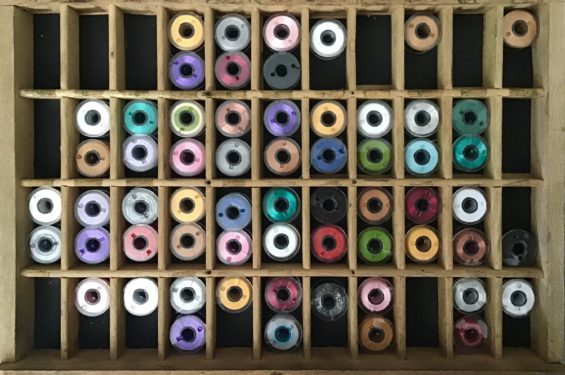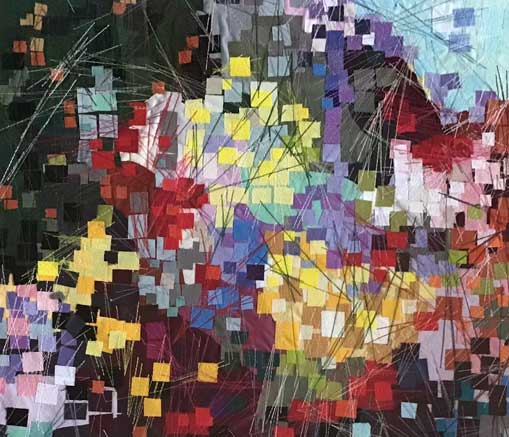The First Year
Projects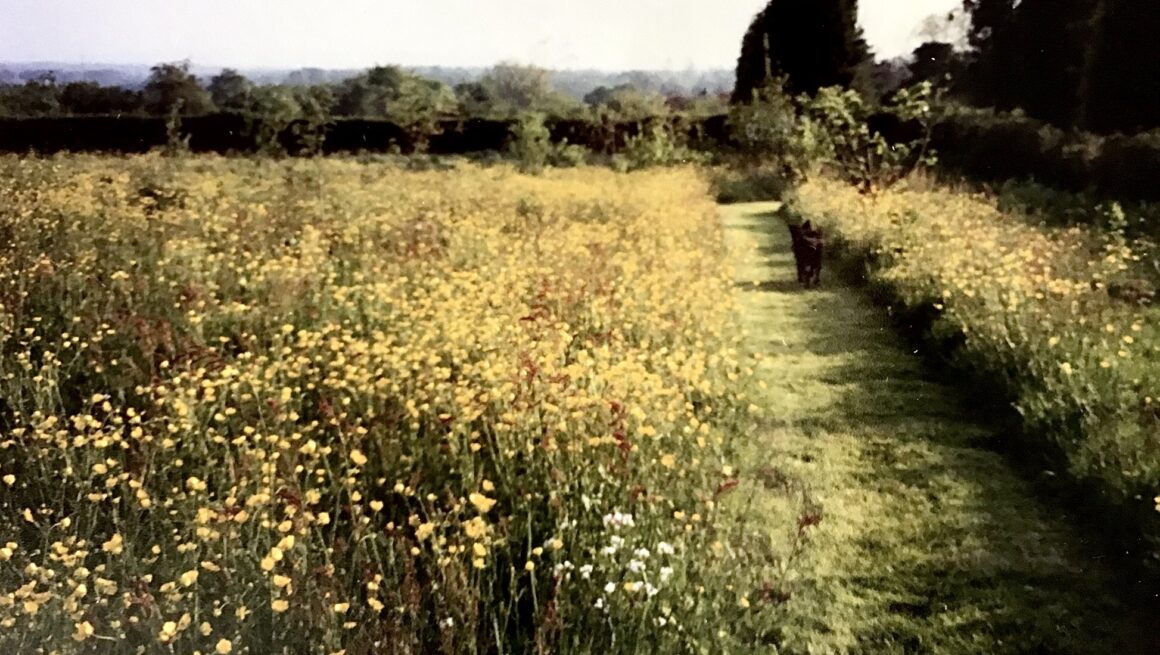
The first summer we just left the meadow to its own devices to see what would happen. Golden sheets of buttercups was the surprising and beautiful result of us doing absolutely nothing. As they were going over, a local farmer asked if he could put some horses in to graze it down. They were grateful for the lush pasture and we were grateful for their efforts as it saved us a job. By the end of September we were left with two friendly ponies who would be with us for as long as we wanted. A perfect arrangement.
Our country idyll came to a shocking abrupt halt by the Great Storm of 1987. It started in the early hours of 16 October. The first rough windy weather we’d experienced since we moved in. We thought it sounded pretty bad, but because of the exposed position of the house assumed this was normal; rather alarming, but we’d get used to it. Later when we heard tiles blowing off the roof and the loft hatch kept lifting up and down, we agreed it was time to move downstairs to sleep.
The two ponies we’d kept on to graze were safely in the stable, and we were warm and comfortable on our makeshift bed downstairs. We thought all was well, but couldn’t have anticipated how the whole of the South East of England had been devastated overnight.
There was an unearthly silence when we awoke. No traffic on the nearby road, no power, no phone and no radio because the local transmitter had been damaged in the storm. We hadn’t a clue as to what had happened and had no way of finding out. It was very frightening.
When I went outside to let the ponies out, I found the greenhouse and one of the sheds gone, our heavy old Heals teak table smashed up and blown halfway down the path, several big trees down and the stable completely shifted off its base by several yards. Scared of what I’d find inside, I went to get G. Had the ponies survived? We’re they badly injured? Thankfully, when we got the door open, there they were, afraid and huddled up but unharmed and pleased to see the light of day. A great relief for us and for them.
When we eventually heard the news, we realised how lucky we’d been. Tragically, 18 people had been killed by the storm. There were estimates that 15 million trees had been blown down. It is hard to imagine the shock of the sudden loss of normal communication in all forms. Roads and rail lines were blocked everywhere. The main road nearest to us was eventually opened up by a bulldozer and teams with chainsaws, days later. We had no electricity for two weeks, and no land line phone for six weeks. Mobiles were yet to be invented.
G managed to get to work after a couple of days, but his usual half hour journey took over two hours and three different attempted routes until a clear one was found. Even roads that weren’t blocked were littered with debris. The centre of the town where he worked was devastated, with an avenue of mature trees fallen like matchsticks, and scaffolding blown off buildings, damaging cars underneath. He just got to the office and stayed there for the duration, sleeping on the floor.
At home, keeping the wood stove going was a priority, with a kettle on the top for our sole hot water supply, and old pans brought into service to cook inside on the fire. Candles and an old oil lamp were used for light until the power was restored. Understandably there were priorities for power reconnection, notably hospitals and essential services. It was fair enough that we waited our turn, and at least we were warm. Local shops also had no lighting, so two customers were allowed in at a time to shop by candlelight. Thankfully, gradually things got back to normal.
It had been the worst storm in the south east since 1703. We borrowed a chainsaw and cleared up our fallen trees. They were mature Leylandii, so pretty enormous but no great loss. The logs were carefully stacked to dry out for another year. Now nature was something to respect and not take for granted. We had become accustomed to an efficient road network, ease of obtaining necessities, electricity for light and appliances, hot water, and telephone communication. It literally brought home to us the importance of the basics of life; having a good store of logs, candles and oil lamps, essential foodstuffs. It demonstrated just how quickly – overnight- everything can dramatically change. For the first time, we recognised that our two old wells were something other than a bit of a novelty. The idea of growing and preserving food, less of a hobby.
